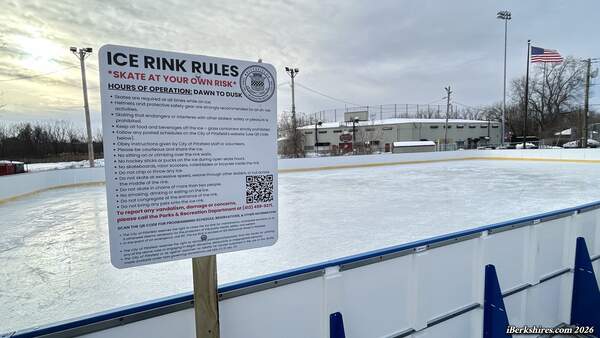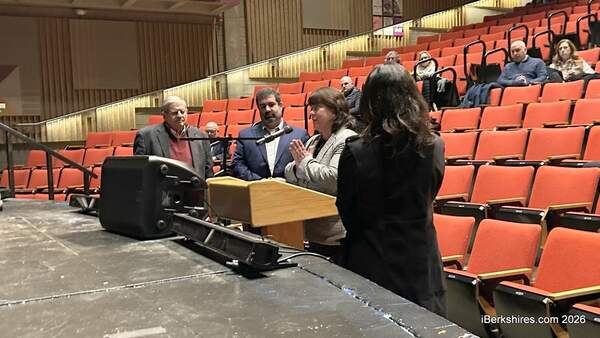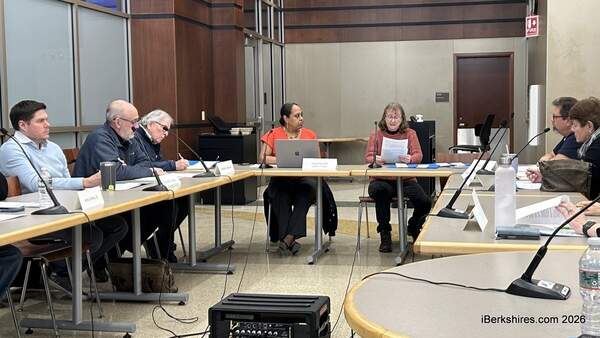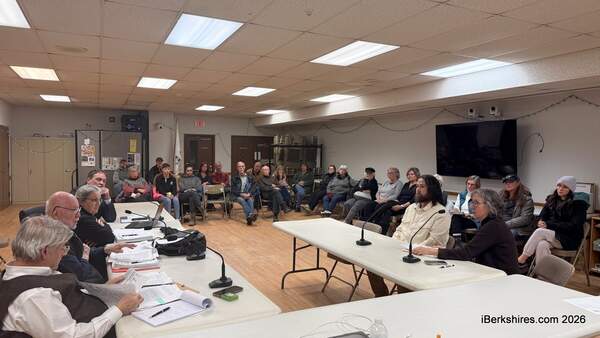
Eagles Band Returns to the Colonial for Annual Concert
PITTSFIELD, Mass. — The Eagles Community Band's annual community concert has a little something for everyone, incorporating pieces from different cultures and periods.
The annual event at The Colonial Theatre has been a staple for the band since the early 2000s. This year, it will be held on Friday, Nov. 8, at 7 p.m.
Associate Conductor David Diggs explained that he wanted to put together a varied program of different wind music styles, including songs such as "The Seven Seas" by Eric Coates, "Summon the Heroes" by John Williams, and a Spanish pasodoble march.
The oldest piece on the setlist was written in 1844 and the newest in 2015.
"I wanted to pick a wide enough range so that everybody would find something they would like and then expose them to something that they may not know already," Diggs said.
"And I promise everyone will walk out of the theater whistling a tune."
Because the concert is three days before Veterans Day, it will feature a medley of service tunes from the Army, Marines, Air Force, Space Force, and Coast Guard.
There are a dozen or so pieces on the list and the concert will run for about 90 minutes with an intermission. The Colonial can seat around 700 people and more than 300 have already reserved a spot.
According to the band members, it usually sells out and they are used to playing in front of a full house.
The Eagles Community Band has performed music in the Berkshires and beyond for nearly 90 years. The concert band has about 70 members and all ensembles combined have around 90, ranging from high school ages to musicians in their eighties.
Founded in 1936, it is the oldest continuing performance ensemble in the Berkshires. The band was originally sponsored by the Fraternal Order of Eagles Aerie 358 and became a nonprofit organization in 1993.
Band manager Deanna Fraher said the band includes people from all walks of life and experience levels. There is no cost for admission but attendees must reserve a seat.
"We like to do the concert at the Colonial because we give it as a free concert to the people of the community," she said.
"All they need is tickets to be sure that they get a seat."
The band also has several longtime members — one having been involved for 60 years. This is Fraher's 32nd year and Pam Pyzocha, clarinetist and secretary, has been involved for around 20 years.
Rehearsals for the November concert began the third week in September but the band plays year round, all combined ensembles performing a total of 36 times this year.
"We play a lot of concerts," Fraher said, explaining that it is how they raise money.
Most of the band's funding comes through performances — including grants from the Feigenbaum Foundation for the Colonial concerts. They also do sponsorships with local businesses and hope to expand those opportunities.
If you can't make it to the November concert, the Eagles Band will hold its annual holiday concert on Sunday, Dec. 14, at 3 p.m. at First United Methodist Church. This event is also free and usually includes a bake sale and giveaway to help raise money.
The musicians say they are looking for percussionists to join the band.
Tags: concerts, eagles,















